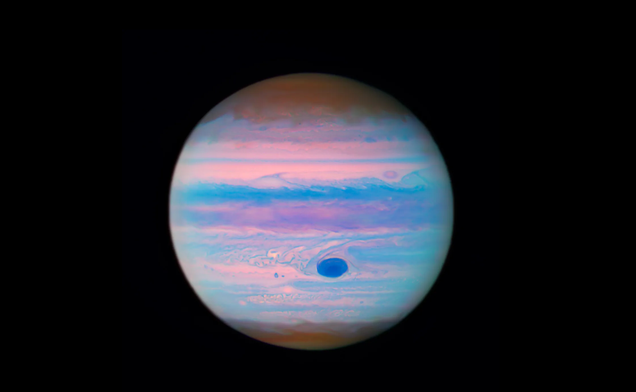
You probably know Jupiter, the rotund fifth planet from the Sun, as orange and tan with a big red splotch. But the Hubble Space Telescope recently imaged the gas giant in ultraviolet light, giving the world a very different look.

You probably know Jupiter, the rotund fifth planet from the Sun, as orange and tan with a big red splotch. But the Hubble Space Telescope recently imaged the gas giant in ultraviolet light, giving the world a very different look.
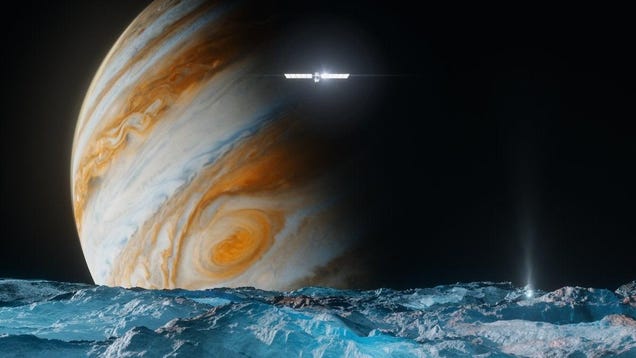
NASA issued an apology for a slightly shady post on X that questioned people’s ability to visit Jupiter.
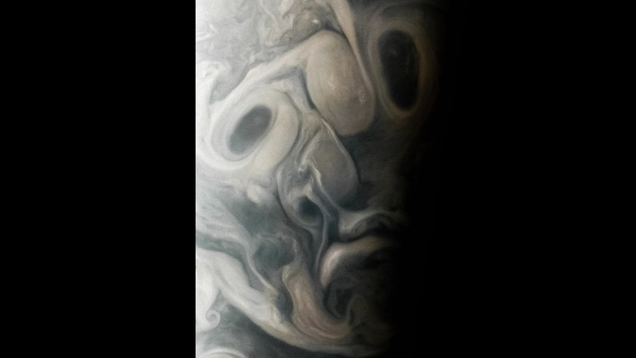
Jupiter, who hurt you? Last month, NASA’s Juno mission spotted a region of the gas giant’s atmosphere forming an abject face, complete with wide eyes, a nose, and frowning mouth.
NASA, ESA, CSA, STScI, Ricardo Hueso (UPV), Imke de Pater (UC Berkeley), Thierry Fouchet (Observatory of Paris), Leigh Fletcher (University of Leicester), Michael H. Wong (UC Berkeley), Joseph DePasquale (STScI)
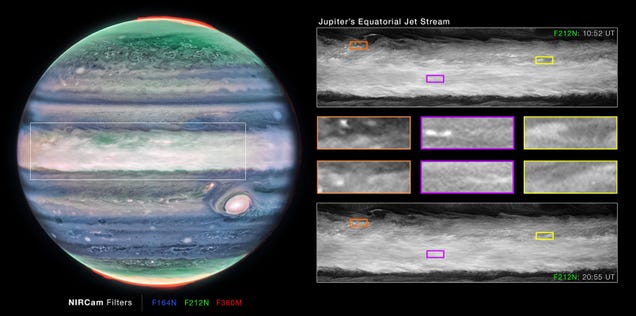
In July 2022, the Webb Space Telescope detected an intense jet shooting across the equator of Jupiter, the largest planet in our solar system. The jet is traveling at about 320 miles per hour (515 kilometers per hour) and is about 25 miles (40 km) in altitude, corresponding to Jupiter’s lower stratosphere.
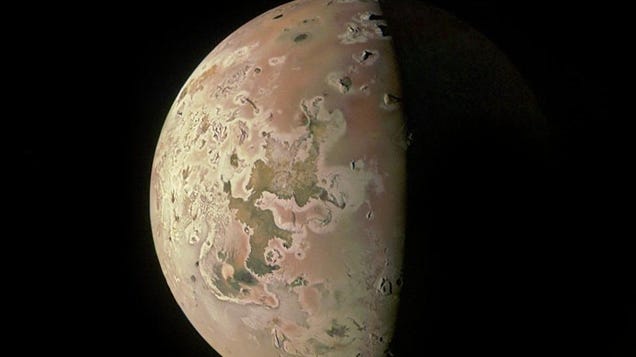
After years of capturing the massive world of Jupiter, the Juno spacecraft has recently turned its attention to its Jovian moons. During a close flyby of Jupiter’s spookiest moon, Juno imaged the charred surface of a volcanic world caught in a haunting gravitational tug.
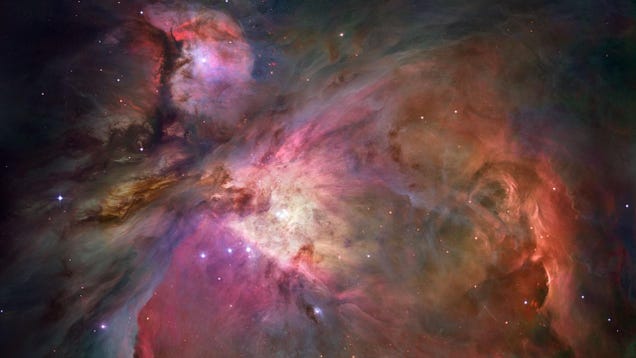
A team of astronomers have detected over 500 planet-like objects in the inner Orion Nebula and the Trapezium Cluster that they believe could shake up the very definition of a planet.
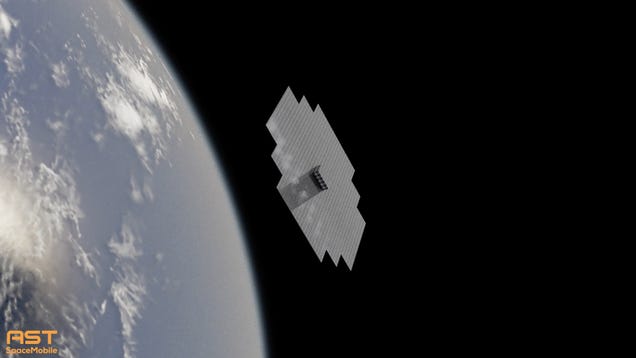
Late last year, a communications satellite unfurled its giant wings, stretching out a 693-square-foot (64-square-meter) antenna array in low Earth orbit. Once fully deployed, BlueWalker 3 became one of the brightest objects in the night sky, outshined only by the Moon, Venus, Jupiter and seven stars, according to new…
NASA, ESA, Amy Simon (NASA-GSFC), Michael H. Wong (UC Berkeley), Joseph DePasquale (STScI)
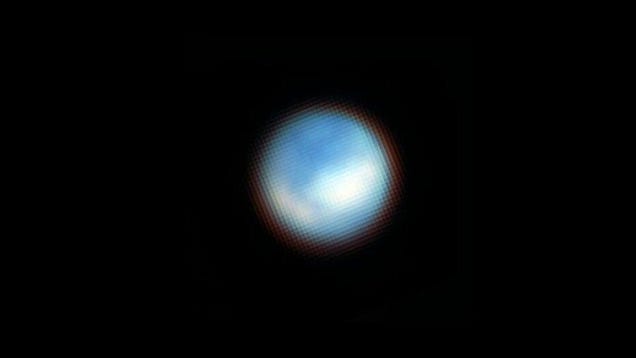
The Webb Space Telescope has made its latest significant discovery: the observation of carbon dioxide coming from a part of Europa, the frozen moon orbiting Jupiter which harbors a salty water ocean under its icy surface.